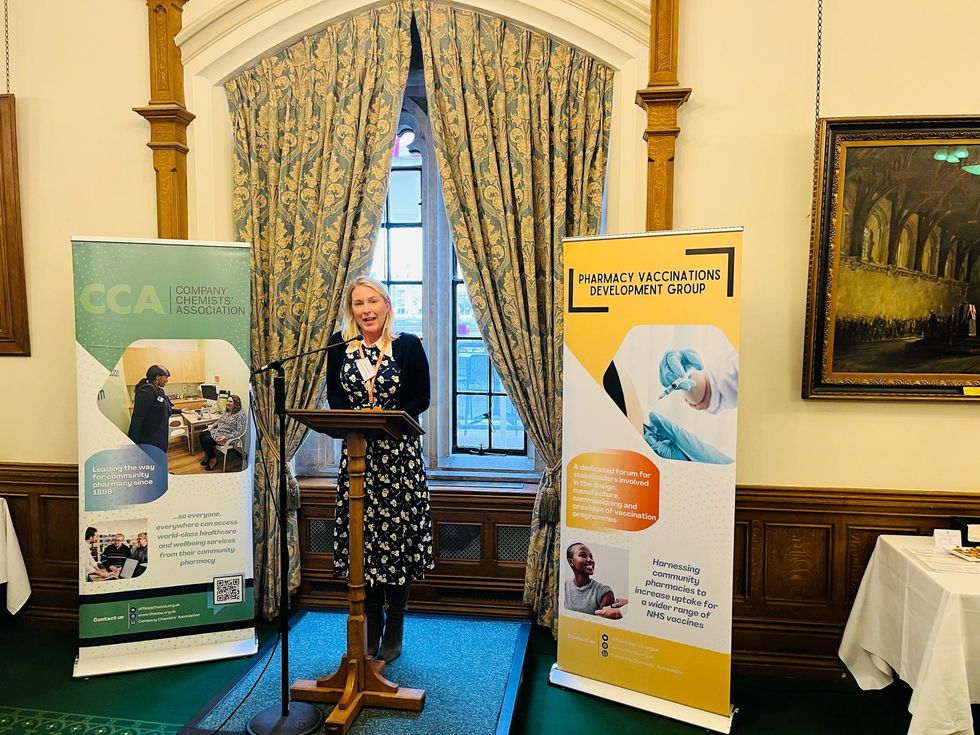Pharmacy Vaccinations Development Group (PVDG), a coalition of organisations representing the entire vaccines supply chain, has urged the government to leverage community pharmacies in addressing declining vaccination rates.
In a report launched in Parliament today (25), the group highlighted significant disparities in vaccine uptake, citing poor access to healthcare and insufficient capacity as contributing factors.
The report, Increasing Vaccination Uptake Through Community Pharmacy, revealed that coverage for all 14 childhood vaccines declined in 2023/24, with none meeting the World Health Organization’s (WHO) 95% threshold for herd immunity.
Concerns over falling vaccine uptake are not new. In 2018, the WHO determined that the UK could no longer be considered ‘measles-free’ due to declining MMR vaccine coverage.
To counteract this trend, the PVDG has called on policymakers to commission pharmacies to administer all vaccines available to older adults and to expand pilots and early adopters.
The group also recommended expanding the NHS National Booking Service to include all vaccines, integrating it with pharmacy booking systems to provide a one-stop-shop for patients.
Additionally, they proposed a review of supply models to ensure “vaccines are available for patients when and where they need them.”
Malcolm Harrison, CEO of the Company Chemists’ Association (CCA), stressed the urgency of action.
“The UK has long held a world-leading position for vaccination but with uptake falling, we need action now to prevent further decline,” he said.
Harrison pointed to the success of pharmacies in delivering flu and Covid-19 vaccines as evidence of their capability.
“Pharmacists are highly trusted by local communities and already play a huge role in community relations, combating misinformation and ensuring vaccines reach underserved communities,” he said.
With most people in England living within a 20-minute walk of a pharmacy, and many pharmacies offering extended hours, including evenings and weekends, the sector is well-positioned to improve accessibility, especially in areas of higher deprivation.
“It’s time to awaken the sleeping giant that is community pharmacy and commission pharmacies to administer more NHS vaccines,” Harrison stated.
“With people typically visiting their community pharmacist twelve times more than their GP, this is a no-brainer,” he added.

Kirsten Watters, corporate director of Health and Wellbeing at the London Borough of Camden, emphasised the vital role of community pharmacies in preventative healthcare.
She said: "We have a real opportunity for community pharmacy to be really at the centre of how we're thinking about preventative healthcare."
"Vaccination delivery at the moment does work for most people, but we have seen an increase in populations needing different ways, more flexible ways, more accessible ways of accessing healthcare."
"I see a really strong role of a network of community pharmacy. I know we're talking about vaccines today, but if we think about NHS health checks, if we think about medicines optimisations, if we think about brief interventions, then actually community pharmacy, and strong community pharmacy networks within primary care, have a huge opportunity to be able to really think about their role in delivering population healthcare."
The National Pharmacy Association (NPA) has also backed the expansion of vaccine administration in community pharmacies, highlighting the sector’s strong track record of success in prevention and public health.
“Our sector’s unmatched level of access and convenience makes this an obvious area for growth,” said NPA vice-chair Olivier Picard.
“It clearly fits the aspirations of the forthcoming NHS 10 Year Plan, to prevent sickness and move more care into communities.”
The report comes over a year after the publication of NHS England’s vaccination strategy, which prioritises improving access, ensuring convenient local delivery, and enhancing outreach for underserved populations.
The PVDG believes that commissioning pharmacies to deliver more NHS vaccines would result in an immediate step-change in uptake.
The PVDG aims to improve access and uptake of vaccines across Great Britain by developing a model for commissioning, promoting, and delivering vaccination programmes in community pharmacy.
The group includes representatives from AAH, Asda, Alliance Healthcare, Boots, GPhC, National Pharmacy Association (NPA), Numark, Pharmacy2U, Phoenix Medical, Rowlands Pharmacy, Royal Pharmaceutical Society, Superdrug, Tesco, and Well.









